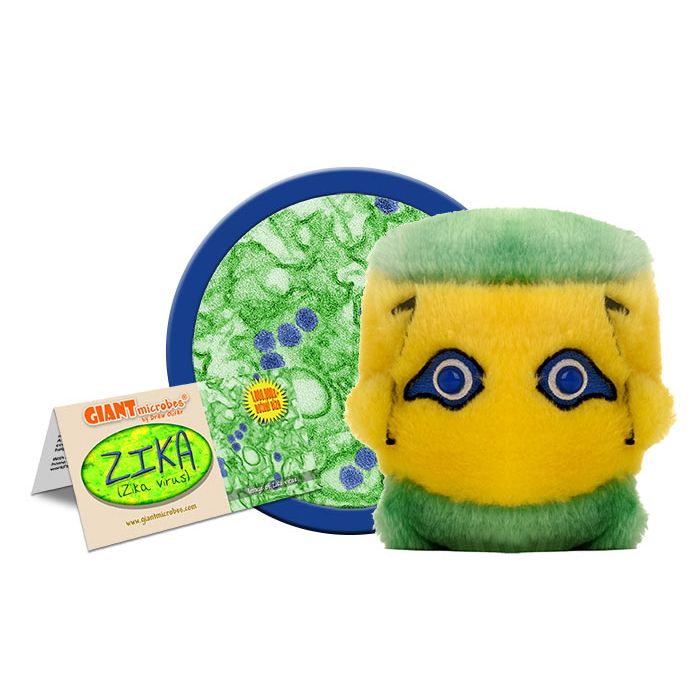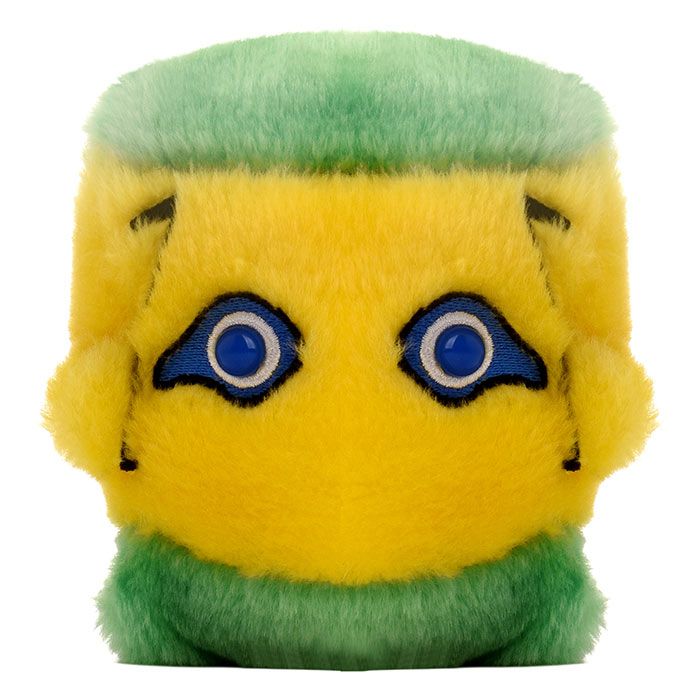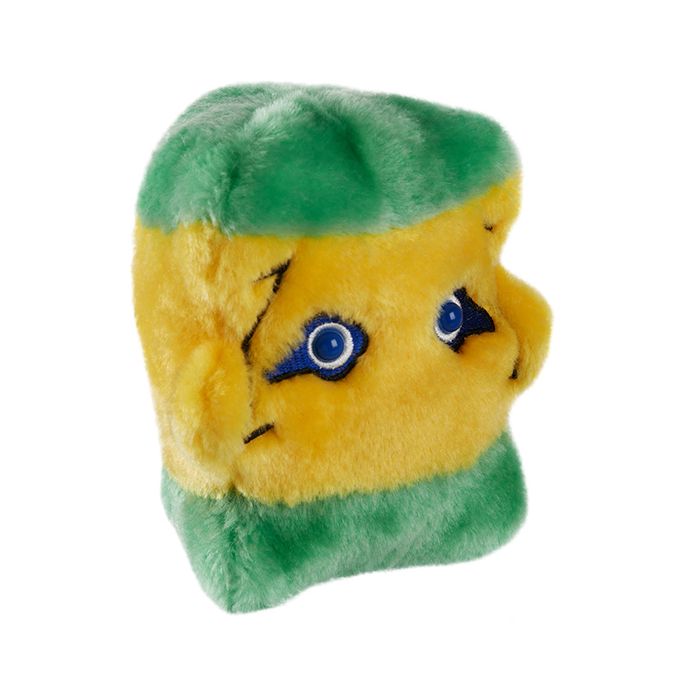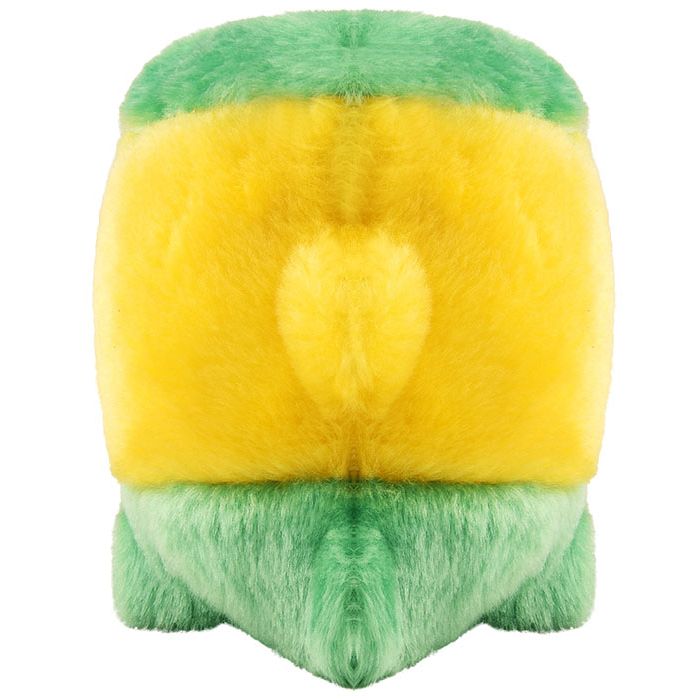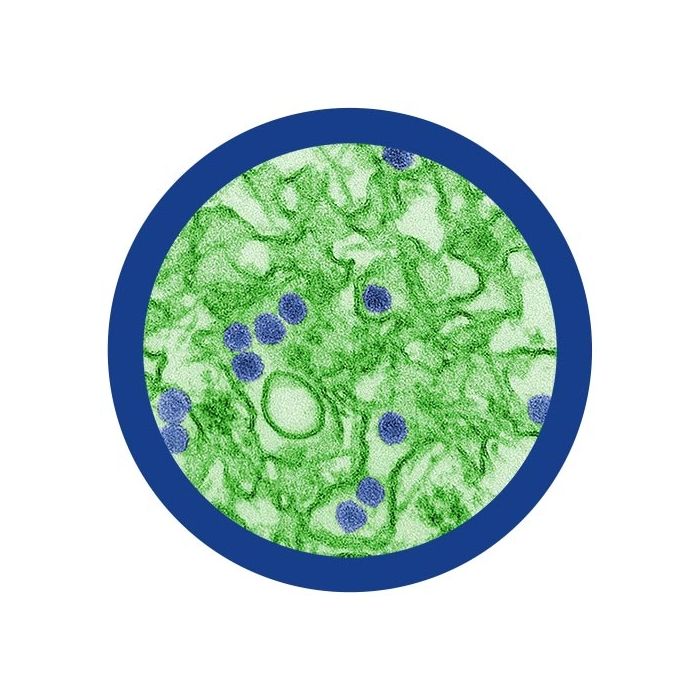Zika (Zika virus)
This plush representation of Zika provides a memorable hands-on-way to learn about this global disease and how mosquitoes transmit the virus. Fun learning tool and gift for friends, family, public health experts, students, doctors, teachers and world travelers.
Soft, cuddly and memorable gift for loved ones and friends to remind them to wear bug spray and prepare for the outdoors.
Features high quality materials, realistic design and comes with an educational card with fascinating facts about the Zika virus. Pairs well with our other Mosquito illnesses: Malaria, Dengue and West Nile Virus plush.
Size: 13 x 10 x 10cm
Product Details
Additional Information
| Sizes | Giantmicrobes are based on actual microbes, cells, organisms and other critters, only 1,000,000 times actual size! Gigantic (GG) 40-60cm XL (XL) 25-38cm Original (PD) 12-20cm Minis (MM) 5-10cm each Keychain (KC) 5-10cm with clip |
|---|---|
| Materials | Plush from all new materials. Stuffed with polyester fiber fill. Surface washable: sponge with water & soap, air dry. |
| Packaging | Each plush microbe includes a printed card with fun, educational and fascinating facts about the actual microbe or cell. |
| Safety | Every product meets or exceeds U.S. and European standards for safety. For ages 3 and up. |
All about Zika (Zika virus)
FACTS: Zika is a virus that causes a disease known as Zika virus disease. It is transmitted to people primarily by the bite of an infected Aedes mosquito, which can also spread other endemic diseases such as Dengue fever. Zika is mainly found where this mosquito lives: tropical Africa, Asia and the Americas.
Zika was discovered in 1947 in the Zika forest of Uganda. For years there were few reported human cases. Zika symptoms are usually mild and similar to those of other diseases (fever, rash, joint pain), so many cases were not recognized.
In 2015 an outbreak in Brazil coincided with a dramatic increase in birth defects. Since then, Zika has spread rapidly to other countries and the WHO has declared it a public health emergency. In 2016 the U.S. CDC even issued travel warnings for pregnant women. Increases in population and global travel have helped spread this once rare disease. There are no specific treatments or vaccines yet available, so it is best to avoid the bite of the Aedes mosquito which is mostly active during the morning and daytime. Of course the malaria-causing Anopheles mosquito is mostly active at night, so there really are no good times when it comes to mosquitos.
| Name | Named after the Zika forest in Uganda, where it was first discovered. |
|---|
| Actual Size | About 40 nanometers in diameter, which is 100 times smaller than a grain of pollen! |
|---|
| Where It Lives | Zika virus is a disease that is found in warm, tropical climates, particularly tropical Africa, Southeast Asia, and the Pacific Islands. It spreads through bites from an infected Aedes species mosquito, which are the same ones that spread dengue and chikunyunya viruses. The virus can also spread through sexual contact or from an infected pregnant mother to her fetus. |
|---|
| Symptoms | It causes fever, rashes, joint pain, tiredness, and red eyes. The symptoms are usually mild and only last up to a week. |
|---|
| Cure | There aren’t any vaccines or medications for Zika yet, but doctors recommend getting plenty of rest, staying hydrated, and taking acetaminophen to reduce the fever. |
|---|
| History |
1947: First discovered by accident while monitoring an outbreak of yellow fever in Uganda. Big Outbreaks: 1952: First human outbreak of Zika happened in Africa. Recent Outbreaks: 2015: First confirmed case in Brazil that quickly spread to surrounding countries and territories in Central and South America. |
|---|
| Fascinating Facts | The recent outbreak in South America coincided with a dramatic increase in babies born with microcephaly in Brazil. This prompted the World Health Organization to declare it a public health emergency of international concern in 2016. The last time they did that was in 2014, after the global Ebola epidemic! |
|---|









